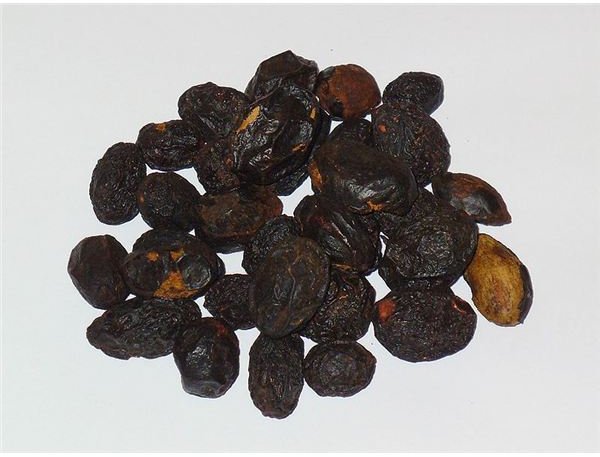Natural Herbs Used for the Treatment of Prostate Cancer: Exploring Botanical Medicine as a Complementary Therapy
Prostate Cancer and Herbs
The most common cancer among males and the third leading cause of cancer-related deaths for men, prostate cancer is very serious and relatively common in older men. Fortunately, there are several effective modern medical treatments used today, including radiation therapy and surgery. They are in many cases effective at curing this disease, especially when it is in its early stages. Once a cancerous tumor has spread beyond the prostate it can be difficult to treat and may even be life threatening. There are several herbs which have beneficial properties for prostate health and for inhibiting cancer cells. These plants can be used to assist the efforts of conventional treatment.
While herbal medicine is not a primary treatment for prostate cancer, it can be very effective for supporting well-being while undergoing treatment and for helping to prevent the cancer from returning. Talk to your doctor about herbs used for the treatment of prostate cancer, making sure he or she is aware of any botanicals you are considering, that they will not contradict treatment and that you are taking them in proper doses.
All of these herbs have a history in the prevention and management of prostate cancer or prostate problems. Some can be safely used with no side effects, while others such as ginseng and licorice root should be used with care if hypertension is present. None are cures, but they do all have potential benefits which you can discuss with your physician.
Saw Palmetto
Saw palmetto has been shown to be helpful for reducing the symptoms of benign prostatic hyperplasia, also known as an enlarged prostate. It has an antiandrogenic effect, inhibiting the conversion of testosterone to dihydrotestosterone. It also acts as a diuretic and a urinary antiseptic. According to the American Cancer Society, some animal studies have demonstrated a positive effect of saw palmetto on cancer cells. Other studies have shown no positive benefits.
Saw palmetto doesn’t appear to have any negative side effects, aside from rare incidences of nausea, upset stomach or other gastrointestinal problems (taking supplements with food may prevent these problems). It can be taken in capsule or tincture form, or even infused to make an herbal tea.
Ginger and Garlic
Ginger and garlic are excellent supporting herbs for overall well-being. They supply minerals and antioxidants, improve circulation and boost the immune system. Ginger inhibits an enzyme that acts as a source of food for prostate cancer cells. Garlic has anti-cancer properties.
While these two herbs are generally considered to be safe for general use, especially when consumed as fresh foods, talk to your doctor before taking supplements or large doses.
Milk Thistle
According to the University of Maryland Medical Center, a laboratory test showed that milk thistle stopped the growth of prostate cancer cells. While this is not enough to indicate that this herb will have the same effect in the human body, it is certainly a possible step in a very positive direction. Milk thistle also supports a healthy liver — as this organ plays several very central roles in maintaining well-being, liver support is always a good thing.
Milk thistle is not as effective when made into a tea as it has poor water solubility. Try taking this herb in capsule or tincture form.
Ginseng and Licorice Root
Panax ginseng and licorice root may also be used for assisting the treatment of prostate cancer. They both have phytochemicals which may slow quick-growing cancer cells and possibly even stop precancerous cells from becoming cancerous. Ginseng also enhances the immune and circulatory systems and helps the body deal with stress. Licorice has anti-inflammatory and anti-bacterial properties. Both should be avoided in cases of high blood pressure. Ginseng is not safe for people with heart disorders, asthma, insomnia or hypoglycemia.
Are Herbs Right for You?
Herbs can be used for the treatment of prostate cancer, but using them alone or without letting your doctor know is not a good idea. They have never been shown, or even do they have a reputation to cure prostate cancer. What they can do is have a positive effect on the body, possibly slowing the spread of the cancer and improving prostate and overall health. Talk to your doctor about all of your health care choices and consider these herbs, as well as the benefits of a nutrient-rich, low-fat diet and regular exercise.
References
University of Maryland Medical Center, https://www.umm.edu/altmed/articles/prostate-cancer-000028.htm
Page, Linda. “Healthy Healing: A Guide to Self-Healing for Everyone, 11th Edition” (Traditional Wisdom, 2003).
Balch, Phyllis A. “Prescription for Nutritional Healing.” Fourth Edition (Penguin Books, 2006).
Gordon, Andrea E, M.D. and Allen F. Shaughnessy, Pharm. D. “Saw Palmetto for Prostate Disorders.” American Family Physician, https://www.aafp.org/afp/2003/0315/p1281.html
American Cancer Society, https://www.cancer.org/Treatment/TreatmentsandSideEffects/ComplementaryandAlternativeMedicine/HerbsVitaminsandMinerals/saw-palmetto
photo of saw palmetto by H. Zell/wiki
photo of ginger root by Crystal/flickr
